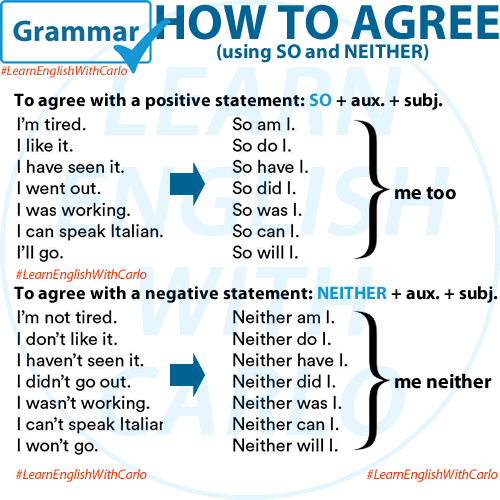Agreeing in English can be simple and natural once you know the key structures. Whether the statement is positive or negative, these phrases will help you respond appropriately.

Agreeing with Positive Statements
- Using “So + auxiliary verb + subject”:
- A: I can swim.
B: So can I. - A: I will call her later.
B: So will I.
- A: I can swim.
- Using “Me too”:
- A: I love chocolate.
B: Me too!
- A: I love chocolate.
- Using “I + auxiliary verb + too”:
- A: I have finished my homework.
B: I have too.
- A: I have finished my homework.
Agreeing with Negative Statements
A: I haven’t read that book.
B: I haven’t either.
Using “Neither + auxiliary verb + subject”:
A: I didn’t watch the movie.
B: Neither did I.
A: I can’t drive.
B: Neither can I.
Using “Me neither”:
A: I don’t like spicy food.
B: Me neither.
Using “I + auxiliary verb + either”:
A: I haven’t read that book.
B: I haven’t either.
Tips for Correct Usage
- Always match the auxiliary verb (do, did, will, have, can, etc.) to the original statement.
- Use “Me too” or “Me neither” for informal conversations—they’re simple and effective!
